Books of the month: From Ali Smith's Summer to Matt Haig's The Midnight Library
Nature books are growing in popularity and August is bursting with tales of the love affairs humans have with the environment and everything in it, from trees and magpies to sheep and wasps.
The Oak Papers by James Canton (Canongate) is an enchanting piece of nature writing and a meditation on finding connection in a disconnected world. Birds feature prominently in Charlie Gilmour’s enjoyable memoir Featherwood (W&N), while Antlers of Water (Canongate), a book edited by Kathleen Jamie, features some fine writing on Scotland’s environment. The contributors include folk singer Karine Polwart and former nurse Jacqueline Bain, who writes a witty account of her “kinship with wasps”. Two small nuggets: there are 9,000 species of wasps in the UK and only female wasps sting.
Robert Wainwright’s Enid (Atlantic Books) tells the intriguing story of the “scandalous” high society adventurer Enid Lindeman (1892-1973), who was nicknamed “Lady Killmore” by writer Somerset Maugham. One of her many husbands was an oddball called Marmaduke Furness, an aristocratic tycoon who insisted on having “freshly ironed shoelaces each day”. A more sobering non-fiction read this month is the well-researched Generation Rent by Chloe Timperley (Canbury Press). “The housing crisis is just getting started,” warns Timperley in this important book.
Elif Shafak’s post-pandemic, post-George Floyd, essay How to Stay Sane in an Age of Division (Wellcome Collection) is a deeply thought-provoking delight. Meanwhile, Bryony Gordon has penned a compelling, candid sobriety memoir called Glorious Rock Bottom (Headline).
Among the best new fiction is poet Elaine Feeney’s fiction debut As You Were (Harvill Secker).
The best thrillers include Jessica Barry’s Don’t Turn Round (Harvill Secker), Blacktop Wasteland by SA Crosby (Headline), Tiffany Tsao’s The Majesties (Pushkin Vertigo) and Moonflower Murders (Century), Anthony Horowitz’s sequel to Magpie Murders.
Three imaginative debuts with far-flung settings are Eva Nour’s The Stray Cats of Homs (Doubleday), set in Syria; Zalika Reid-Benta’s Frying Plantain (Dialogue Books), set in Toronto’s “Little Jamaica”, and Louise Fein’s People Like Us (Head of Zeus), a compelling tale of forbidden love set in 1930s Leipzig.
Novels from Matt Haig, Ali Smith, Susan Crossan and Donal Ryan, along with Sally Coulthard’s history of sheep, are reviewed in full below.
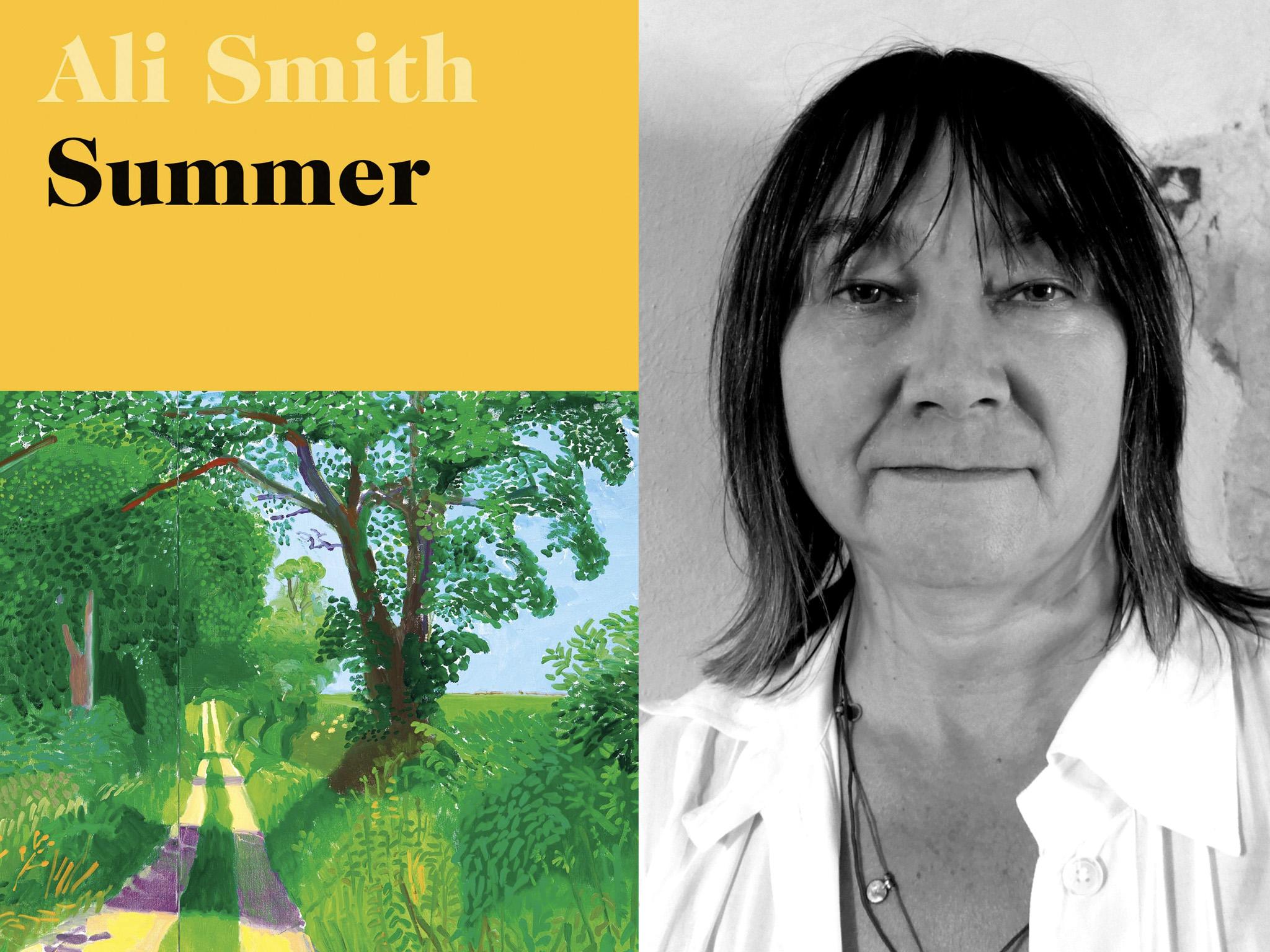
Summer by Ali Smith ★★★★★
Ali Smith said that the concept behind her seasonal quartet, which comprises Autumn, Winter, Spring, and now Summer, was to emulate Victorian novelists such as Charles Dickens and create something new about characters facing up to the world around them. Smith’s series concludes with the sublime Summer, which was started and completed earlier this awful year. Summer takes in the fractious events of the coronavirus pandemic, lockdown, needless care home deaths, and the Black Lives Matter protests about the death of George Floyd.
The opening section of the novel focuses on a family in Brighton who are a microcosm of our divided Britain. Mother Grace voted Leave, her now separated husband Jeff – whose business has been “brex-f***ed” – voted Remain. The Greenlaw family were split “as if with a cheese wire, sliced right through the everyday to a bitterness nobody knew what to do with”.
Their 16-year-old daughter Sacha is in meltdown about the state of the planet, she loathes the lies of politicians and believes “everything needs to be unmasked, right now”. Her 13-year-old brother Robert is going off the rails. His antics include taking the family Alexa down to Brighton pier, hurling it off the side, and shouting down after it, “Alexa, tell us how to do the breaststroke.”
Smith uses the anarchic teenager to satirise Boris Johnson. The boy claims to be enamoured by our “consciously dishevelled” prime minister. He parrots his slogans – telling his father not to be “a doomster and a gloomster” – and is in awe of the “brilliant subterfuge” of the people in charge of Britain. Smith glides easily between direct authorial address and the perspective of each character. She calls this a “caricature kind of era” and has Robert repeat an internet joke about Johnson’s hero being the mayor in Jaws, because he was a “fantastic guy” who kept the beaches open, never mind the catastrophic consequences.
Although Summer can be read as a standalone, characters from the previous three novels come into the book, including Charlotte and Art, who run the Art in Nature project, the activist Iris and 104-year-old Daniel Gluck. The middle, knottier, section of the novel explores Gluck’s memories of life in an internment camp on the Isle of Man in the 1940s (a truly grim lockdown) and his sister Hannah’s recollections of life in the war.
The purpose of art is debated in all four novels and it’s a telling moment in Summer when Smith writes about a German artist who finds that €9,000 have been deposited in his bank account during the pandemic. It was a no-strings gift from the German government to all that country’s artists. Throughout the novel, Smith scatters beguiling reflections on Albert Einstein, Italian filmmaker Lorenza Mazzetti, sculptress Barbara Hepworth, Shakespeare, the relative merits of silent comedians Max Linder and Charlie Chaplin, the habits of starlings and even the charm of Nick Drake’s folk album Bryter Layter.
My favourite section of the novel is one in which Grace takes a country walk to revisit a village where she once enjoyed an uncomplicatedly beautiful summer afternoon in the English countryside with a kind stranger. “We are always looking for summer … we’re always looking for the full open leaf, the open warmth, the promise that one day we’ll be able to lie back and have summer done to us; one day soon we’ll be treated well by the world. Like there really is a kinder finale.”
Creating fiction about contemporary times in a series about the continual passing of the seasons gives Smith the chance to blend the short and long view of life, offering poignant reminders about context in this fleeting existence of ours. Although Summer is angry and sorrowful at times, Smith’s marvellous novel is not without hope and the promise of transformation. And what a thought that is in summer 2020.
‘Summer’ by Ali Smith is published by Hamish Hamilton on 6 August, £16.99
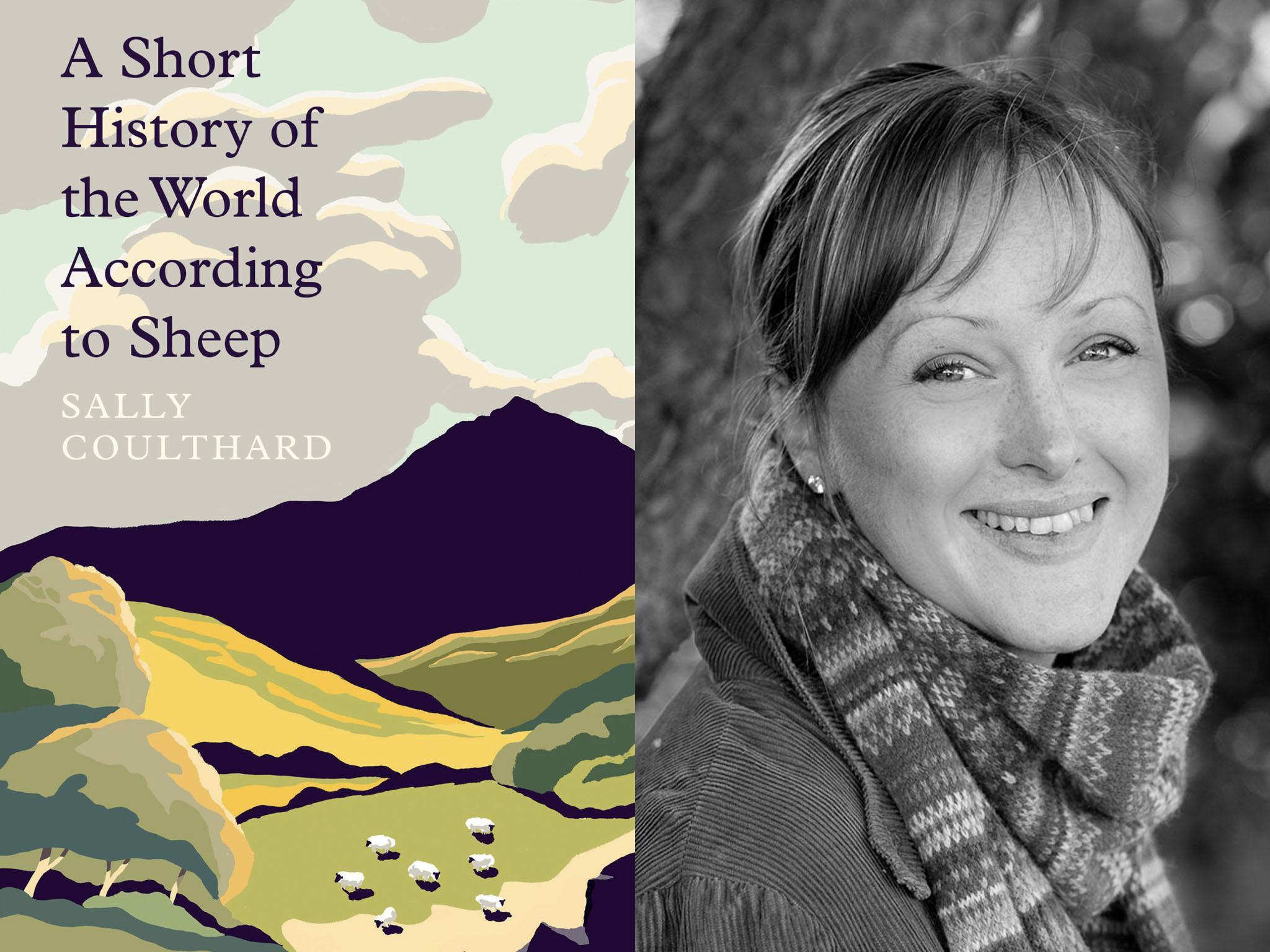
A Short History of the World According to Sheep by Sally Coulthard ★★★★☆
Our woolly friends have long been valuable commodities. In 1776, the list of crimes for which you could be hanged in Britain included “associating with gypsies”, “being out at night with a blackened face” and “stealing sheep”. Sally Coulthard’s story of how sheep shaped the human story is full of rich pickings.
A Short History of the World According to Sheep ranges from Neolithic sheep-rearing to the impact on the world economy of the 1 billion sheep chewing the cud on our 21st-century globe. Wool itself is a marvel. “Unlike synthetic fibres, which often combust with alarming ease, wool has an amazing cell structure that swells when it’s heated up, forming a natural layer of insulation that resists the spread of any flame,” writes Coulthard. “That’s why wool blankets are so good at smothering fires and why woollen underwear is a must-have for many firefighters.”
The image of the shepherd with his crook is familiar throughout the world (the book features striking chapter-opening linocut drawings by Sarah Price) and Coulthard points out that shepherdesses were every bit as skilled as their male counterparts, despite the absent-minded image propagated by the nursery rhyme “Little Bo-Peep”.
The author details the ways sheep have permeated our language, from archaic terms that have disappeared – “mutton-monger” was a 16th-centry term for a promiscuous man – to commonplace modern sayings such as “dyed-in-the-wool”, “being on tenterhooks” or “wolf in sheep’s clothing”.
The book is full of fascinating digressions, about everything from ancient wool trousers and ram tattoos, to Iron Age eating habits (roasted puppy head as well as sheep meat), the use of wool patterns in wartime espionage, how sheep farming led to the rise of the domestic dog and even the role of sheep in sexual health (Casanova used a sheep-gut condom).
Coulthard weaves together a detailed story that is full of fascinating social history. The sections on the cruelty of the Highland Clearances, or the account of how wool tycoons profited from inhumane child labour during the Industrial Revolution, are enough to make anyone bleat.
‘A Short History of the World According to Sheep’ by Sally Coulthard is published by Head of Zeus on 6 August, £16.99
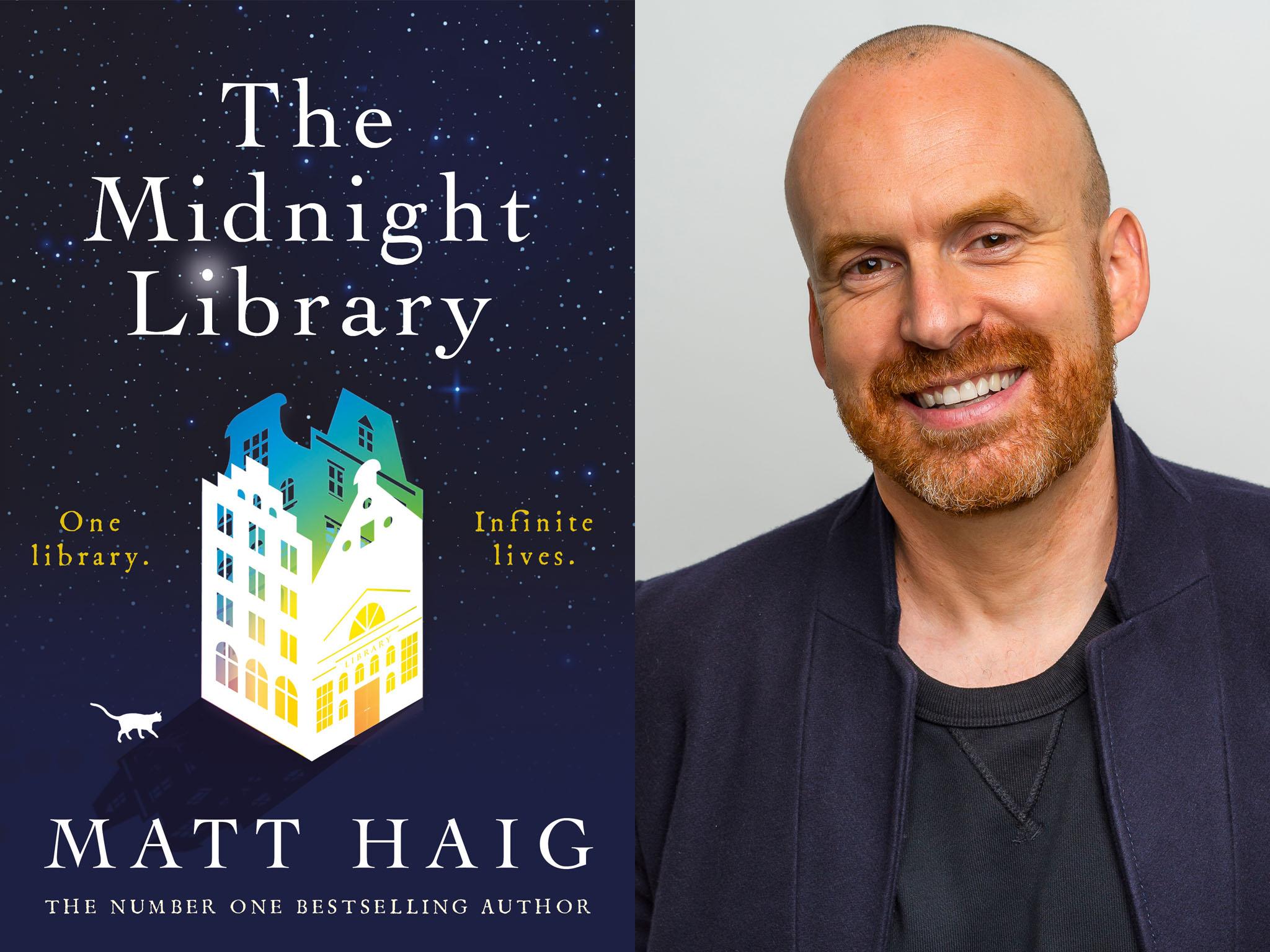
The Midnight Library by Matt Haig ★★★★☆
For those of us who regard libraries as “little shelters of civilisation”, it seems somehow fitting that a library is the place you’ll be sent between life and death if you get the chance to experience how your time on earth would have turned out if you had done things differently.
For Nora Seed, the protagonist of Matt Haig’s warm-hearted magical realism tale, her fate cauldron is the Midnight Library. It’s a place where she can undo every one of the regrets that drove this young woman to the point of believing that suicide was the only way out of her “disaster” of a life in Bedford, a town that is “a conveyor belt of despair”.
As Nora gets to experience dozens of her own alternative lives – including ones in which she becomes a famous pop star, a geoscientist researching the impact of climate change on glaciers and an Olympic swimming champion – Haig takes us all on a journey that combines quantum physics, philosophy and the tricky terrain of the human heart. The Midnight Library is full of insights into the way we all sometimes misunderstand negative, toxic family memories. “The question is not what you look at, but what you see,” said Henry David Thoreau, a quotation that appears several times in the novel.
The Midnight Library also has pertinent things to say about the draining effects of modern life, of being overloaded with social media non-friend friends (“scrolling through other people’s happy lives”) and always “thinking of yourself only in terms of the things that you aren’t”. Haig is one of the most inspirational popular writers on mental health of our age and, in his latest novel, he has taken a clever, engaging concept and created a heart-warming story that offers wisdom in the same deceptively simple way as Mitch Albom’s best tales.
Once you pick up The Midnight Library you will get caught up in what Nora chooses to do about her fate and you will surely find yourself reflecting about how hard it is for any of us to accept ourselves completely.
‘The Midnight Library’ by Matt Haig is published by Canongate on 13 August, £16.99
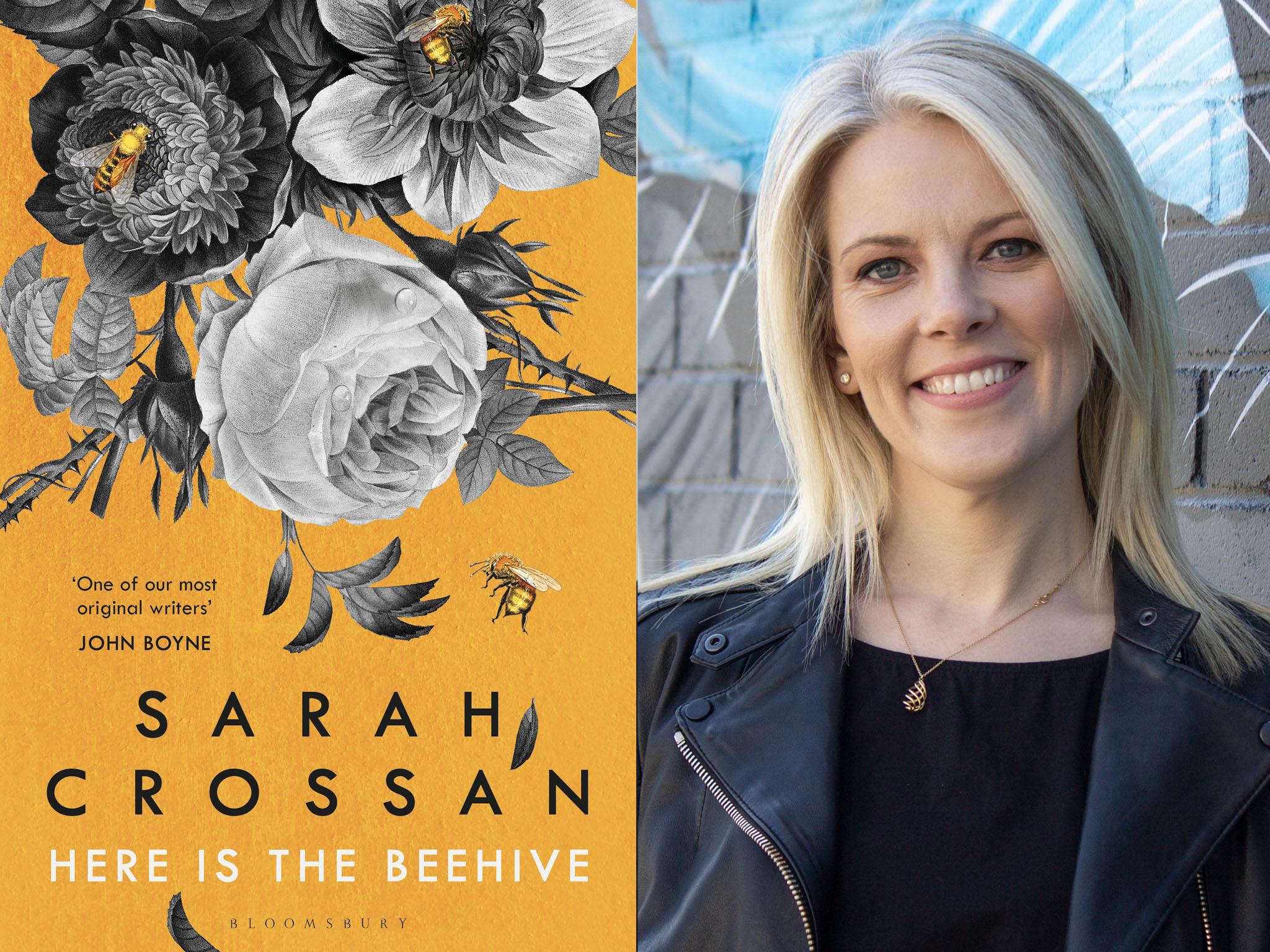
Here Is the Beehive by Sarah Crossan ★★★★☆
Irish Children’s Laureate Sarah Crossan’s excellent young adult novels have done a great deal to promote the resurgence of the verse novel among young readers. Her debut adult novel Here Is the Beehive is written in that format. It tells the story of Ana, a married solicitor who learns, right at the start of the novel, that her former lover Connor has died suddenly.
Crossan peels away the tale of two failing marriages and shifts backwards and forwards in time to reveal the depths of obsession and grief Ana experiences as she tries obsessively to make sense of her three-year affair. The fractured verse style mirrors Ana’s disintegration.
Ana is an unusual protagonist. She is selfish, self-absorbed, cunning, and cruel in the way she befriends Connor’s wife Rebecca. Ana treats her husband with disdain and is cold and complacent towards her own children. “I wish to Christ I was a better person,” she admits. Crossan skilfully finds a way for us to understand and empathise with Ana’s pain.
Here Is the Beehive is an eviscerating account of modern marriage; unions which seem to be full of controlling behaviour and battlegrounds in which a wife or husband can convince themselves they are “winning”. Behind the alluring passion of an intense affair, however, Crossan portrays a world equally full of insecurities, jealousy, and possessiveness.
There is a telling moment when the haughty Ana orders a young “shelf-stacker” to find her some green-top organic milk.
“She bites her pierced lip. ‘Cow udders are filled with pus. It gets infected from over-production. Makes no difference what you buy.’ She is right: choice is a myth. What’s written on a label is rarely what’s inside.”
In Crossan’s disturbing, potent novel, that message seems to be as true of humans as it is of milk.
‘Here Is the Beehive’ by Sarah Crossan is published by Bloomsbury on 20 August, £12.99
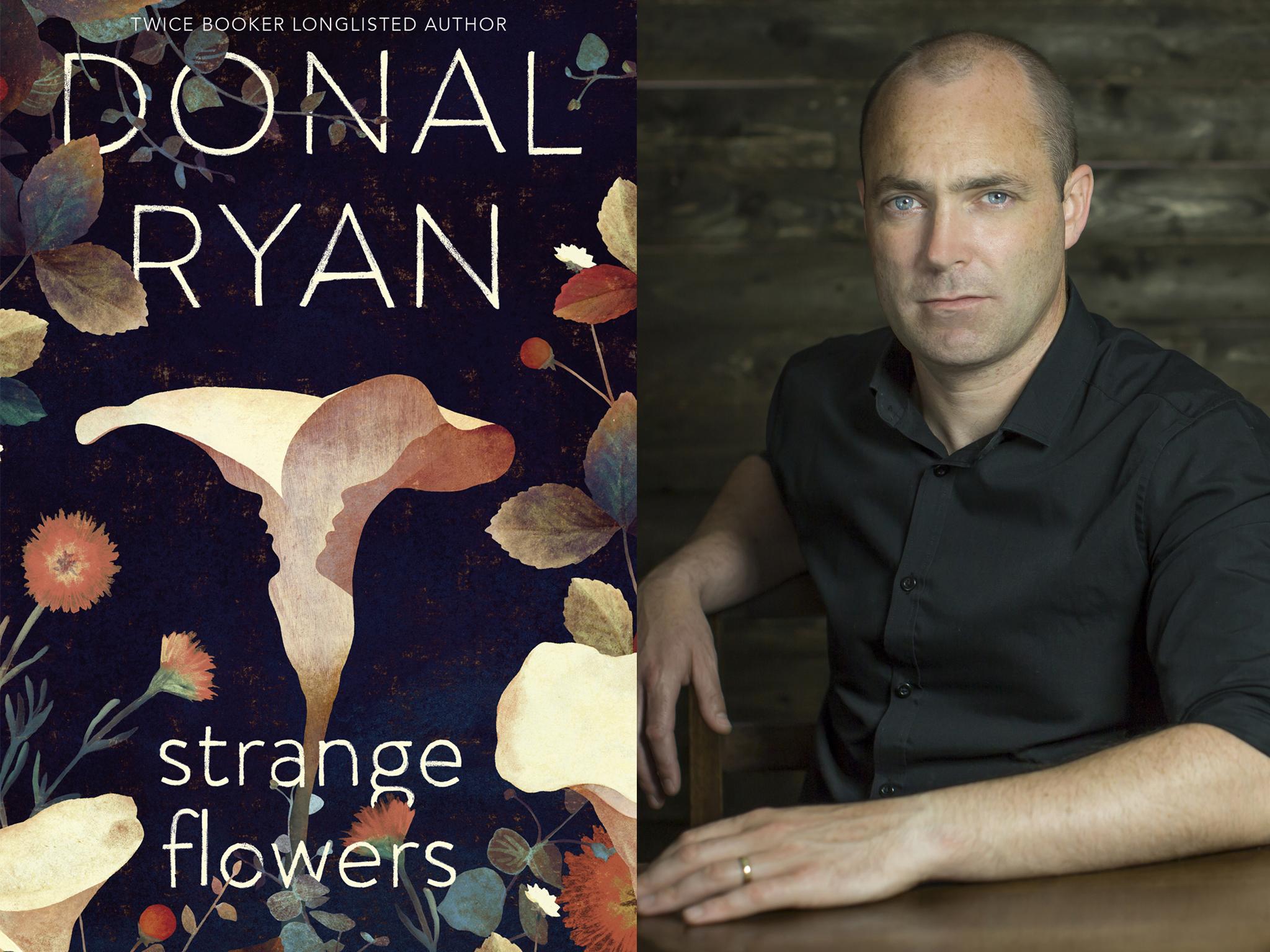
Strange Flowers by Donal Ryan ★★★★★
Life is unpredictable, gaps can open between people and the world is sometimes a dangerous place. All these realities come together in Strange Flowers, in which Donal Ryan expertly captures the scariness of having your world contorted out of shape by chaotic forces beyond your control.
The 20-year-old Moll Gladney flees her small Irish home and disappears in 1973. Her bewildered elderly parents, Kit and Paddy, have no idea whether they will see their daughter again. “They felt on their shoulders the terrible weight of all the things about the world they didn’t know,” writes Ryan.
Moll returns five years later, followed by a mystery black man from England, turning the Gladney’s world upside-down again. The compelling story follows what happens to three generations of the Gladney family. The central characters are drawn with real force and it’s moving to see how some of them, despite feeling “ruined and spiritless”, do their best to find the redemptive power of love as they are battered by “fate’s ineluctable will”.
Ryan has written a sensitive novel about the joys and vindictiveness of small-town rural life and tumultuous emotions of family groups. In the story of Moll’s partner Alexander, Strange Flowers also offers an incisive examination of racism, both subtle and explicit. What elevates Strange Flowers is that the novel is also a profound meditation on loss, belief, sin, shame, regret, hidden love, and sexuality.
Ryan, twice Booker-longlisted, has deservedly established a reputation as one of Ireland’s most important novelists. Strange Flowers is a triumph. I was entranced by the way he slowly and beautifully reveals the way that even broken people can open the door fully to the truth of themselves.
‘Strange Flowers’ by Donal Ryan is published by Doubleday on 27 August, £12.99
tinyurlis.gdv.gdv.htclck.ruulvis.netshrtco.de
